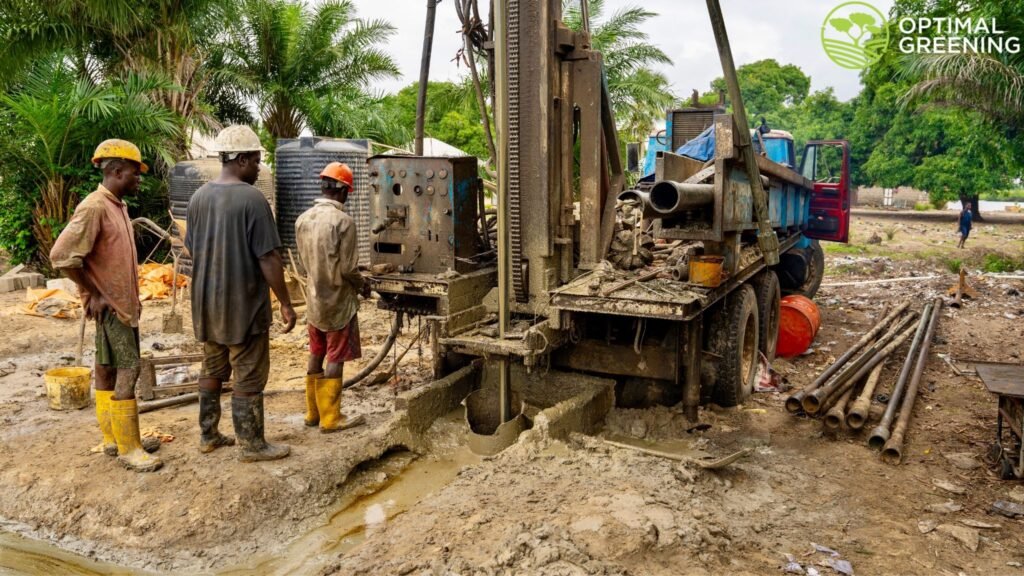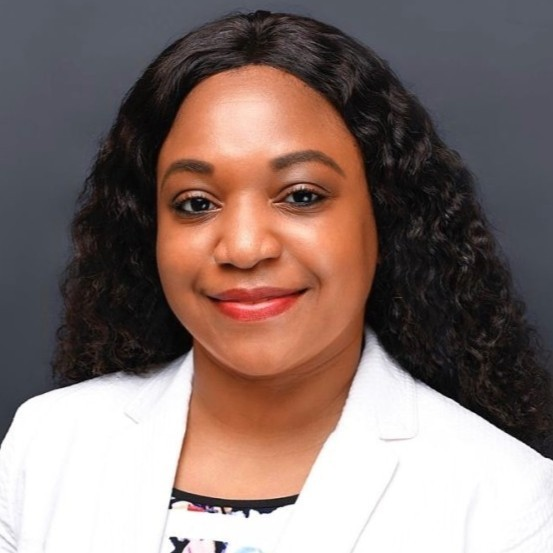Osen Iyahen is an environmental engineer and social entrepreneur committed to transforming Africa’s marginalised communities through sustainable solutions. With a background in Chemical Engineering from the University of Missouri, a Master’s in Sustainability from Harvard University Extension School, and an MBA from INSEAD, Osen brings a wealth of knowledge and global experience to her work.
After living and working in the United States for over a decade, she returned to Nigeria in 2008, deeply moved by the severe lack of basic amenities in many rural areas. Determined to tackle issues like clean water, sanitation, and energy access, Osen founded Optimal Greening in 2020, a nonprofit organization focused on environmental sustainability and empowerment. Through her impactful work, she is restoring dignity and hope to some of Africa’s most underserved communities, leading a new wave of change across the continent.
Her career as an Environmental Engineer flourished in the U.S., but a deep desire to give back to her homeland drew her back to Nigeria in 2008.
Returning to Lagos, she was struck by the stark contrast in living conditions between Nigeria’s rural communities and the developed world. Osen Iyahen witnessed firsthand the daily hardships faced by rural Nigerians: children walking miles to fetch water, widespread open defecation, and a lack of access to basic sanitation. It was more than just poverty—it was an environmental crisis that increased disease risks and stunted opportunity.
“I was shocked to see how people were living,” Osen Iyahen recalls. “It was nothing like what I’d experienced abroad. I knew I had to do something.”
Optimal Greening provides access to clean water, sanitation, and sustainable energy. With the vision to “Restore Dignity to Africans,” the non-profit focuses on improving the lives of those often left behind by development. Its initiatives are tied closely to the United Nations Sustainable Development Goals (SDGs), addressing core issues like clean water (SDG 6), sustainable energy (SDG 7), and responsible consumption and production (SDG 12).

One of Optimal Greening’s most impactful projects occurred in the Agala community of Lagos State, home to over 1,100 people displaced from informal settlements. The residents lacked access to clean water, electricity, and sanitation. Under Iyahen’s leadership, Optimal Greening installed an industrial borehole and water treatment plant, providing the community with safe drinking water for the first time. They also introduced a 13kWp solar PV system, offering renewable energy to power homes, and built a biodigester system to treat waste while producing biogas and liquid fertilizer. These interventions improved living conditions and created 25 jobs for local youth.
“Seeing the impact on the lives of women and children who no longer have to suffer from preventable diseases—it’s incredibly rewarding,” says Iyahen. “But we know there’s still so much work to be done.”
Iyahen ensures clean energy for rural communities
Beyond clean water and sanitation, Iyahen’s vision extends to electrifying rural areas and empowering women through sustainable cooking alternatives. Optimal Greening’s Women Empowered with Clean Cooking Options (WECCO) initiative helps women switch from harmful traditional fuels like charcoal and firewood to clean energy sources, reducing health risks and environmental damage. Meanwhile, their Clean Energy for Rural Communities (CERC) project delivers solar power to underserved regions, bringing light and power to dark places for far too long.
Osen Iyahen has ambitious plans to expand Optimal Greening’s reach across Africa. She envisions scaling its projects to impact even more communities, working alongside governments and international organizations to extend life-changing resources across the continent. “Our mission is to make sure that every person, no matter where they are, has access to the basic amenities they need to live a life of dignity,” she says.
Her story is one of resilience, determination, and hope. By addressing the most critical environmental challenges facing Africa’s underserved communities, she is creating a future where access to clean water, sustainable energy, and sanitation is not a privilege but a fundamental right for all. She is changing the narrative through Optimal Greening and proving that real, lasting change is possible—one community at a time.



